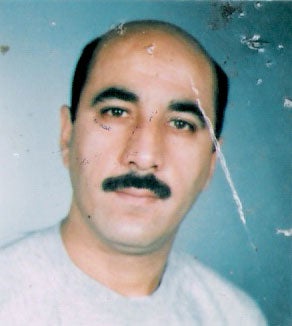Authorities should free Daniel Zarrouk and review all cases of prisoners who are serving multiple sentences for a single offense, Human Rights Watch said in an open letter sent today to Tunisian President Zine el-Abidine Ben Ali.
Zarrouk, an activist in the banned Islamist an-Nahdha movement, has been in prison since 1992. Since his arrest, Tunisian courts have convicted him four times for his past membership in the organization.
Tunisian human rights lawyers say that Zarrouk’s case is only one of many in which courts have convicted dissidents more than once for the same offense, in violation of international and domestic law.
“Repeat convictions for membership of a banned group are cynically used to lengthen prison terms for Zarrouk and, most likely, other dissidents,” said Sarah Leah Whitson, Middle East and North Africa director at Human Rights Watch.
After tolerating an-Nahdha in the first years after he became president in 1987, Zine el-Abidine Ben Ali smashed the movement in the early 1990s, accusing it of plotting to overthrow the government. Those an-Nahdha leaders who did not flee into exile were imprisoned after unfair trials. Fifteen years later, many remain in prison.
The courts have sentenced Zarrouk, a 51-year-old teacher of Islamic education and father of three, to more than 20 years in prison on various charges, including a total of nine years for “membership.” He is reportedly due for release in 2009, after commutations of his sentence. During his trials Zarrouk denied any part in planning or carrying out violence but admitted belonging to an-Nahdha.
In its letter to the president, Human Rights Watch focused on the injustice of repeat convictions for the same offense, while noting that it opposed in principle laws that criminalize membership in a political organization independent of any cognizable criminal deeds, such as planning or committing acts of violence.
In Zarrouk’s second, third, and fourth trials, the courts rejected defense arguments that they were trying him on the same membership charges for which he had already been convicted. Instead of showing that the new offense was distinct, the courts characterized “membership” as a “continuous” offense and perversely placed the burden on the defendant of proving that the new offense was the same as the old one.
“By the logic of the Tunisian judiciary, what is to prevent prosecuting Mr. Zarrouk separately for every single day that he belonged to an ‘unauthorized’ organization?” Human Rights Watch asked President Ben Ali.
In the past, Zarrouk’s lawyers and Human Rights Watch wrote separately to Minister of Justice Béchir Tekkari to request a review of evidence that Zarrouk had been convicted more than once for the same offense. The ministry did not respond to either letter.
Tunisia’s code of criminal procedure, consistent with international law, prohibits the prosecution of an individual who has already been judged for the same offense.
“Tunisia’s judiciary should respond substantively to appeals from prisoners who claim they were unjustly convicted more than once for the same offense,” said Whitson. “And Daniel Zarrouk – whose case is flagrantly unfair – should be freed immediately.”

Daniel Zarrouk, in 1988






